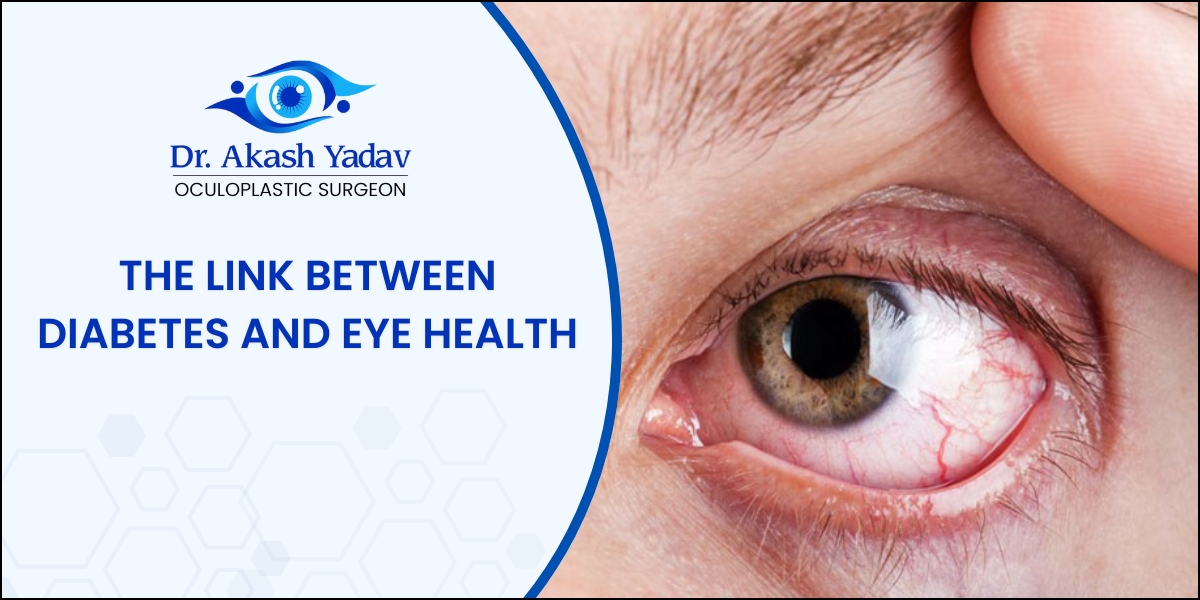Understanding Link Between Diabetes and Eye Health
Living with diabetes involves careful management of blood sugar levels, but many are unaware of the significant threat it poses to one of our most precious senses: our sight. Diabetic retinopathy is a serious complication of diabetes and a leading cause of blindness in adults. The good news? With awareness and proactive care, it is largely preventable.
What is Diabetic Retinopathy?
Diabetic retinopathy occurs when high blood sugar levels cause damage to the tiny blood vessels in the retina—the light-sensitive tissue at the back of your eye. These damaged blood vessels can swell, leak, or even close off completely. In advanced stages, the eye may start growing new, abnormal blood vessels that can bleed into the vitreous (the gel-like fluid in your eye), causing severe vision loss.
The most alarming aspect of diabetic retinopathy is that it often has no early warning signs. Vision may seem perfectly fine until the disease has progressed to a severe stage.
How Can You Prevent Diabetic Retinopathy?
Prevention is your most powerful tool. By integrating these habits into your life, you can dramatically reduce your risk:
- Control Your Blood Sugar: This is the cornerstone of prevention. Consistently high HbA1c levels significantly increase your risk. Work with your doctor to keep your levels within your target range.
- Manage Blood Pressure and Cholesterol: High blood pressure and cholesterol can exacerbate eye damage. A heart-healthy lifestyle benefits your eyes too.
- Schedule Regular Dilated Eye Exams: This is non-negotiable. A comprehensive dilated eye exam allows an eye specialist to look directly at your retina and spot signs of damage long before you notice any vision changes.
- Maintain a Healthy Lifestyle: A balanced diet rich in leafy greens, fish, and fruits, combined with regular exercise, supports overall health and stable blood sugar levels.
- Quit Smoking: Smoking damages your blood vessels, accelerating the progression of diabetic retinopathy.
Don’t Wait for Symptoms
If you have diabetes, annual dilated eye exams are essential. If you experience any sudden vision changes like blurriness, floaters, dark spots, or flashes of light, do not wait for your annual appointment—see an eye specialist immediately.
Expert Eye Care in Pune
If you are seeking expert care for diabetic eye disease in Pune, consulting a specialized surgeon is crucial. Dr. Akash Yadav, a renowned Oculoplastic Surgeon in Pune, emphasizes the importance of early detection and advanced management of conditions like diabetic retinopathy. Protecting your vision from diabetes is a lifelong commitment. By taking control of your health today, you are investing in a clearer, brighter tomorrow.
Frequently Asked Questions (FAQs)
1. What are the first signs of diabetic retinopathy?
Often, there are no early symptoms. The first noticeable signs can include blurred vision, floaters (dark spots or strings in your vision), and difficulty seeing at night.
2. Can diabetic retinopathy be cured?
While there is no outright cure, treatments like laser surgery, injections, and vitrectomy surgery can effectively manage the condition, prevent further vision loss, and sometimes even improve sight.
3. How often should a diabetic get an eye exam?
Most people with diabetes should have a comprehensive dilated eye exam at least once a year. Your doctor may recommend more frequent exams if you show signs of retinopathy.
4. Can you reverse diabetic retinopathy?
You cannot reverse existing damage, but strict control of blood sugar, blood pressure, and cholesterol can significantly slow or even stop the progression of the disease.
5. What is the main cause of diabetic retinopathy?
The primary cause is consistently high blood sugar levels damaging the delicate blood vessels in the retina over time. The longer you have diabetes, the higher your risk.


